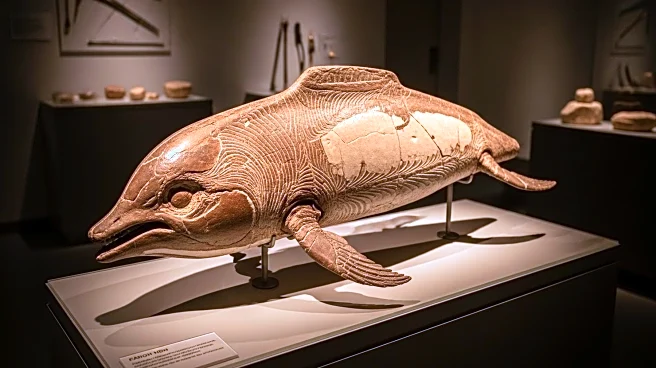What is the story about?
What's Happening?
A team of Peruvian paleontologists has revealed the discovery of a 12-million-year-old porpoise fossil found near Peru's Pacific coast. The fossil, measuring approximately 11.5 feet in length, was discovered in the Ocucaje desert by paleontologist Mario Urbina. This rare specimen, from the Pisco geological formation, is noted for its excellent preservation, which will allow scientists to study the prehistoric marine mammal's movement, diet, and lifespan. The Ocucaje desert is renowned for its rich fossil deposits, including those of dwarf whales, dolphins, and sharks from the Miocene period.
Why It's Important?
The discovery of this well-preserved porpoise fossil provides a unique opportunity to study the evolutionary history of marine mammals. It offers insights into the biodiversity and ecological dynamics of the Miocene period, a time of significant evolutionary change. The fossil's condition allows for detailed analysis, which could enhance understanding of how ancient marine ecosystems functioned and how current species have evolved. This find also underscores the importance of the Ocucaje desert as a significant paleontological site, contributing to global knowledge of prehistoric life.
















